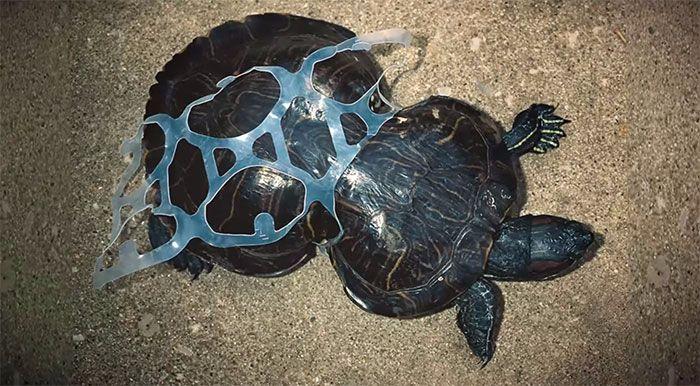The Port Stormwater Public Outreach and Education Program was created to increase the public’s knowledge and awareness of the negative impacts of stormwater pollution on creeks, bays, wetlands, the ocean, and other waterways.
Trash

Trash discarded on land frequently makes its way into streams, creeks, rivers, bays, and eventually the ocean. Trash is a significant pollutant of California’s waters that adversely affects beneficial uses, including uses that support aquatic life, wildlife, and public health. Studies show that by 2050 there will be more plastic in the water than fish.
What We're Doing to Reduce Trash
- Bag Ban. Prohibits all single-use plastic checkout bags and requires a 10-cent charge per checkout bag provided.
- Zero Waste Policy. Applies to events on Port property that attract more than 5,000 people.
- Big Bellys. Several Big Bellys trash receptacles are located on Port Property. Big Bellys are solar powered and prevent scavenging.
- Trash Reduction Plan. This plan will include installing Full Trash Capture Devices at drain inlets by 2030. More details coming soon!
How you can help
- Participate in local cleanups, such as Coastal Cleanup Day.
- Put litter in its place. Use nearby garbage cans or pack your trash until you reach the next available trash can.
- Use reusable mugs, water bottles, and cloth napkins.
- Participate in Adopt a Drain.
Water Efficient Landscaping
California’s water supply is limited and under increasing pressure. Up to 30% of urban water use goes to landscaping. To ensure the efficient use of water for all San Francisco landscapes, projects with 500 square feet or more of new or modified landscape area are required to comply with the Water Efficient Irrigation Ordinance.
For more information about water efficient landscaping, please refer to the ReScape California website. ReScape California, also known as the Bay-Friendly Landscaping & Gardening Coalition, is an advocate and expert in the creation of sustainable landscapes for commercial, multi-family, and public spaces as well as single-family residences.
Restaurants
Restaurants contribute to stormwater pollution when they wash fats, oils, grease, or cleaning chemicals into stormwater drains. When these substances run into the Bay, they hurt wildlife and damage delicate ecosystems. The Port is working with restaurant tenants to educate them about best management practices to avoid stormwater pollution.
Resources for Restaurants
- “Stormwater Pollution Prevention: Best Management Practices for Restaurants” in English and Spanish.
- Only Rain Down the Drain flyer for restaurant employees.
- Best Management Practices for Food Service Facilities from the CA Water Board.
Illicit Discharges
Storm drains are meant for conveying only rainwater! Disposal of other wastes such as motor oil, paint, wash water, or pet waste down a storm drain can introduce pathogens, nutrients, detergents, and various toxic pollutants to our waterways. The Port is implementing a program to spot and eliminate illicit discharges.
YOU CAN HELP! Call 311 regarding illicit discharges/connections to the Port’s storm drains or illegal dumping.
Pesticide, Herbicide, and Fertilizers
The Port promotes Integrated Pest Management (IPM) as an effective approach to manage pests while reducing potential water quality impacts.
Resources
- SF Environment Integrated Pest Management - San Francisco city staff has been national leaders in IPM since the City passed the Integrated Pest Management Ordinance in 1996.
- Our Water Our World - This website has been developed to assist consumers in managing home and garden pests in a way that helps protect waterways.
- Fact sheets on specific pests and methods to manage them without using hazardous materials.
Mobile Cleaning and Pressure Washing
Many of the drain inlets at the Port of San Francisco discharge directly to the Bay or Ocean. It is illegal to pressure wash outdoor areas that drain to the stormwater system without a mobile washing permit from SFPUC.
Resources
- For more information, visit sfwater.org or call (415) 695-7310.
- Mobile washing permit application from SPFUC.
For more information about the Port Stormwater Public Outreach and Education Program, contact Rich Berman at (415) 274-0276 or richard.berman@sfport.com.